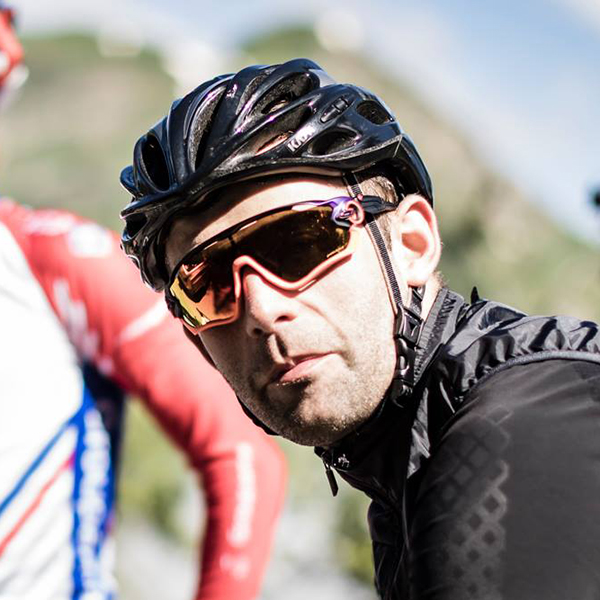The Roval Alpinist SLX Disc is the only alloy wheelset in the Specialized-owned brand’s road-going arsenal.
Roval says it combines low weight with excellent durability, while offering a ride quality that rivals alloy, and more expensive carbon road bike wheels.
In practice, it largely achieves these aims, while keeping the price tag significantly below Roval's entry-level carbon wheelset, the Rapide C 38.
That said, if you’re in the market for a lightweight or performance-focused alloy wheelset, there are viable options for even less money that don’t feel significantly worse.
Roval Alpinist SLX Disc details and specifications
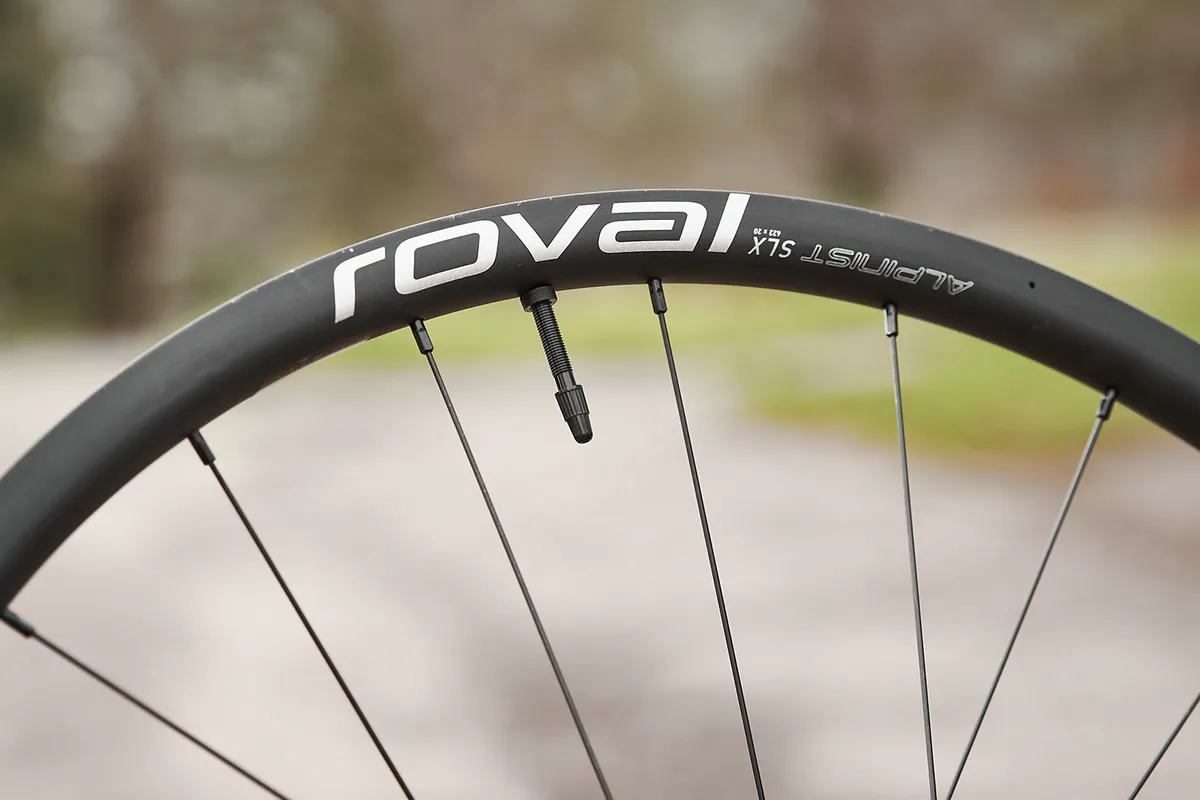
As the only alloy wheelset in Roval’s road offering at the time of writing, the Alpinist SLX is beyond direct comparison within the American brand’s range.
That said, the conundrum of whether to go for alloy or carbon when upgrading stock wheels remains for many. On that score, it undercuts Roval’s least expensive Rapide C 38 carbon wheelset by £239.
Compared to that particular wheelset, the Alpinist SLX features higher-spec DT Swiss 350 hubs (the C 38s have DT Swiss 370 hubs), with a 10-degree engagement angle from its star-ratchet design.
The same hubs are found on the excellent Rapide CL II carbon wheelset.
The hooked rims are made of 6061-grade aluminium, which has been shot-peened (struck repeatedly with metallic shot to pre-stress the surface area). In theory, this makes it stronger and, ostensibly, more durable.
They are 24mm deep, with a contemporary 20mm internal rim width.

Roval has worked to keep weight down at the rim – the walls are thin with a dish-like internal channel, reaching a maximum 23.5mm width externally.
The rims are tubeless-ready, supplied with rim tape and tubeless valves fitted, and are rated to a maximum tyre inflation pressure of 130psi.
Sapim D-Light straight-pull spokes are used – 21 in the front wheel and 24 at the rear – and attach to alloy Sapim nipples.
The total system weight limit for the wheelset is 125kg.
In the box, a spare spoke and nipple kit is supplied for servicing needs, although the Alpinist SLX is covered by Roval’s two-year crash replacement policy, with scaling repair discounts up to five years after the original purchase date.
Roval says the Alpinist SLX Disc weighs 1,485g, plus 15g for the valves and rim tape. My test wheelset, with the valves and rim tape installed, tipped the scales at 1,511g.
Roval Alpinist SLX Disc performance
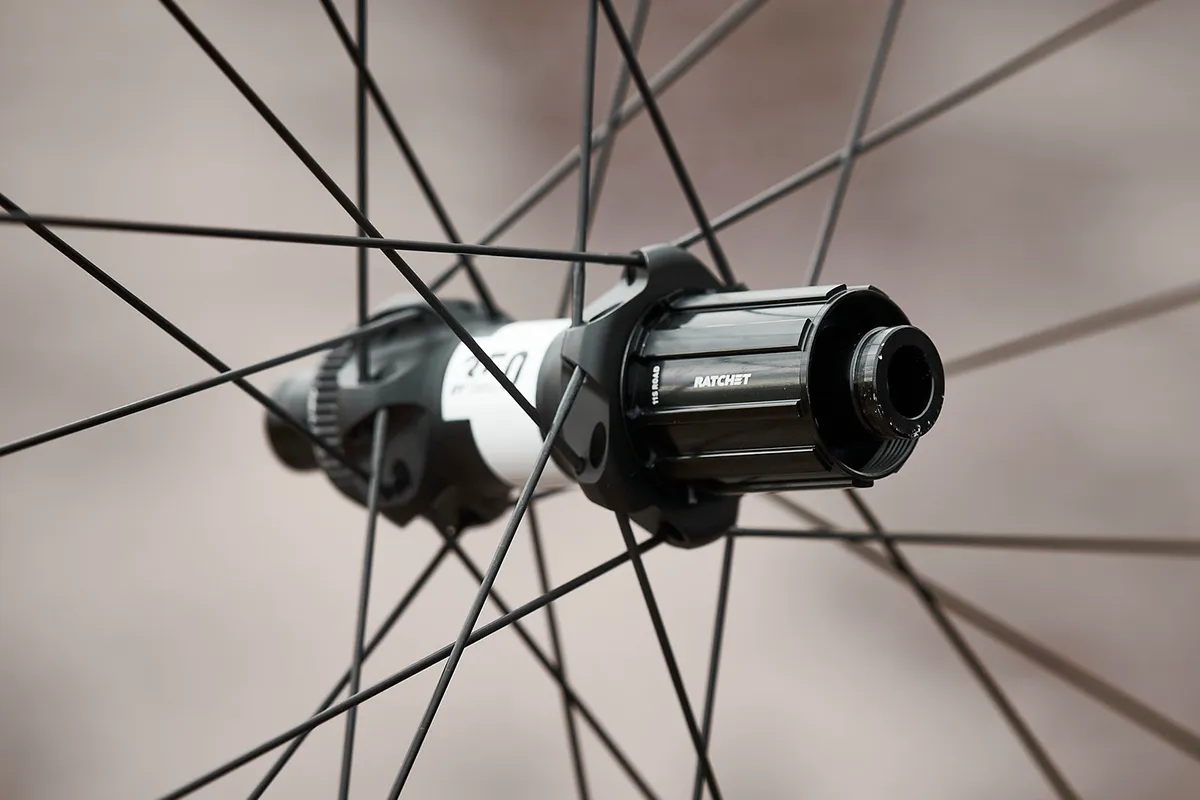
I installed 700x28c Hutchinson Challenger TLR tyres, set up tubeless, with ease.
Air leakage was acceptable over a 24-hour period (I lost 15psi), while the tyre bead popped into place with the use of a standard track pump.
I needed to use a tyre lever to prise the final part of the tyre over the rim, but this is par for the course.
For some of my testing, I reverted to a clincher setup, using butyl inner tubes.
With both setups, I came away very impressed by the reactivity and responsiveness of the Alpinist SLX Disc.
As one might expect, these characteristics come into their own on climbs, especially when speed is low but power output is high.
I couldn’t sense any undue flex in the wheelset relative to a low-to-mid priced carbon alternative, such as Vision’s SC40 Disc wheelset. The DT Swiss 350 hubs have a well-earned reputation as able and reliable companions.
One could argue the use of DT Swiss 240 EXP hubs – for example – would be a lighter, and therefore more fitting, choice for a climbing-focused wheelset such as this. However, this would inevitably drive up the end cost.
As I’ve found with the Rapide CL II carbon wheelset (and others besides), the DT Swiss 350 hubs deliver all the performance most will ever need.
Thanks, no doubt, to the shallow depth, the Alpinist SLX feels very calm in crosswinds and reassuringly stable on descents.
While the sensation is perhaps exacerbated slightly by a clincher setup (and the slightly higher tyre pressures required compared to tubeless), I found the wheels transmitted a slightly harsh resonance through the bike over pimply road surfaces.
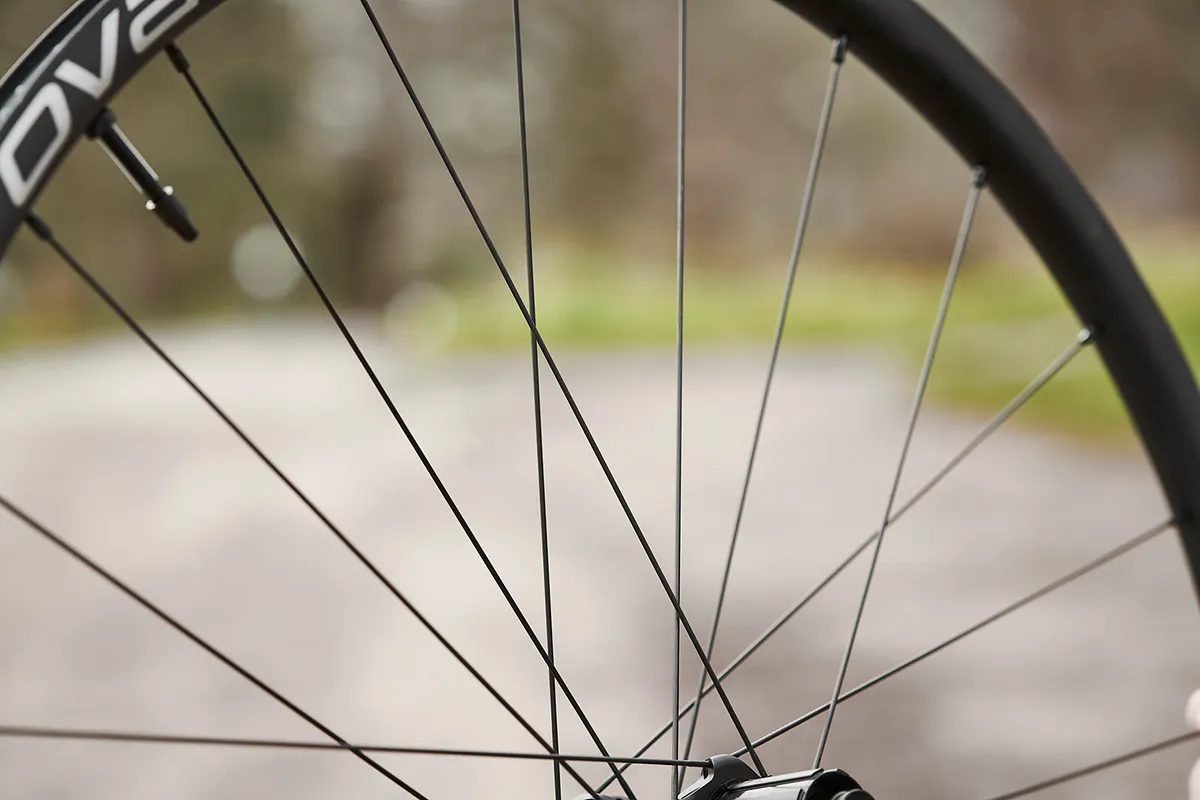
I’m currently testing a range of alloy wheelsets, all in the region of £500, and some of these deliver a slightly smoother ride sensation than the Alpinist SLX.
Of course, if I wanted to save the Alpinist SLX for summer best, or when riding in places where the roads are better-paved, this would be less of a factor.
That said, some may choose to use this wheelset as a relatively light, premium training wheelset for year-round and all-road use. In this respect, I’d prefer a little less road buzz to be transmitted.
Naturally, aero performance wasn’t the design priority here, and it’s fair to say Roval hasn’t performed a magic trick in making them especially fast on the flat.
However, the responsive characteristics of the wheelset helped feed my desire to attack sharp rises in the road and keep pushing on the pedals to maintain speed.
Yes, a deeper (carbon) wheelset would likely be faster overall, but the Alpinist SLX doesn’t feel sluggish because it’s shallow or made of aluminium.
It’s also fair to say there aren’t many options for deeper-section carbon rims at this price point, especially not from major brands such as Roval.
A case for alloy over carbon?
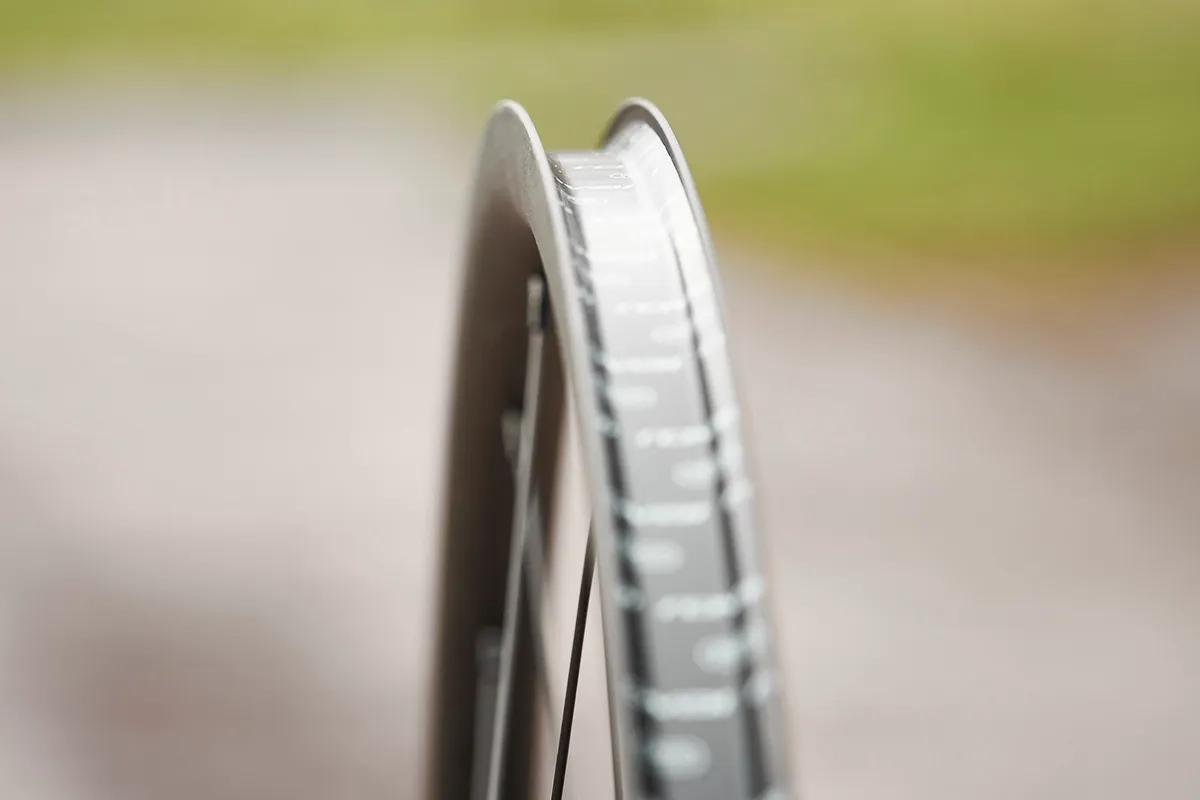
In recent years, brands have put most of their effort into developing carbon wheelset technology, effectively pushing top-end prices up, and lower-end prices down (to a degree).
That said, it’s still rare for an entry-level carbon wheelset to be priced the same as a premium alloy option.
The Alpinist SLX is therefore challenged on two fronts: Mavic, for example, makes the £790 Ksyrium SL Disc alloy wheelset (but is around 90g heavier on paper), and Fulcrum is represented by the Racing Zero DB wheelsets (both a chunk more expensive, but arguably packing more premium specs, overall).
On the carbon side of things, perennial value striver Hunt makes the significantly lighter (1,374g, claimed), but slightly wider and deeper 30 Carbon Aero Disc wheelset for £779.
The British brand can also compete, with the 34 Aero Wide Disc SL alloy wheelset, at an enticing £499 price.
As the name suggests, these offer a more aero-focused design at a slightly heavier weight (claimed 1,565g).
While the Alpinist SLX Disc is a very good performer, I’m unconvinced that it stands head and shoulders above its chief competitors, alloy or carbon.
Roval Alpinist SLX Disc bottom line
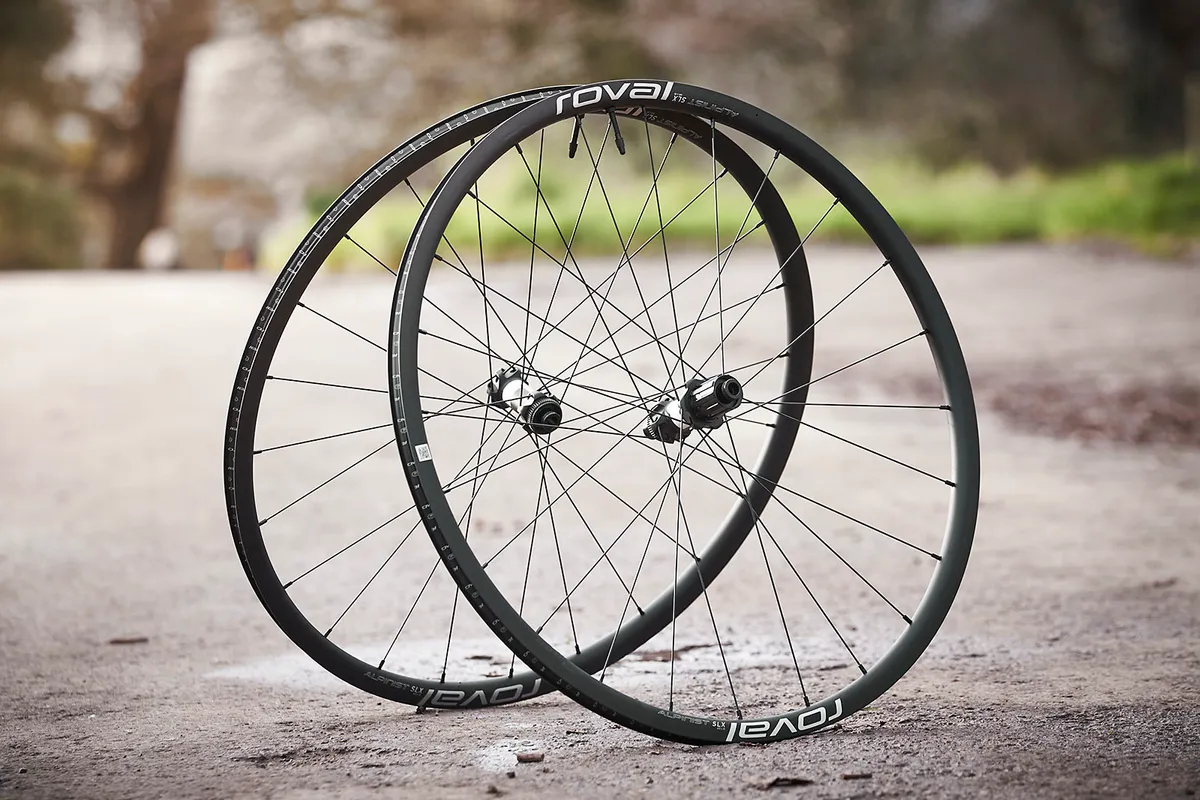
The Roval Alpinist SLX is an impressive alloy wheelset. It delivers exciting performance on hilly terrain, feels stable and the spec list gives little reason for concern when it comes to reliability.
It’s also backed by a good crash replacement scheme, which isn’t always guaranteed.
Nevertheless, there remain strong competitors on paper at around this price, while the question of entry-level carbon looms large.
How we tested | Alloy road wheelsets
We tested seven alloy disc brake tubeless wheelsets over the winter of 2023/24. Each was fitted to a Fairlight Strael 3.0 test bike, with the same setup used wherever possible*.
Hutchinson Challenger TLR 700x28c tyres were used for testing, with a tubeless installation carried out to gain an indication of setup ease.
For the test rides, we deferred to a clincher setup with butyl inner tubes – to reflect this very common setup and make changeovers a little easier, faster and less wasteful of sealant.
*The same Shimano RT-MT800 Center Lock rotors were used for all test wheels, except the Halo Drove Line 700C, which required the use of six-bolt discs.
Wheelsets on test
- Roval Alpinist SLX Disc
- Hunt 34 Aero Wide Disc SL review
- Ere Research Explorator GCR40
- DT Swiss AR1600 Spline
- Mavic Ksyrium S Disc review
- Miche Syntium Aero
- Halo Drove Line 700C
Product
| Brand | Roval |
| Price | A$1100.00, €850.00, £760.00, $800.00 |
| Weight | 1511g |
Features
| Rim material | aluminium |
| Wheel size | 29in_700c |
| Brake type simple | disc |
| Hubs | DT Swiss 350 |
| Spokes | Sapim D-Light Straightpull |
| Freehub | Shimano |
| Rim depth | 24mm |
| Rim internal width | 20mm |
| Spoke count | 24 |
| Spoke count | 21 |

